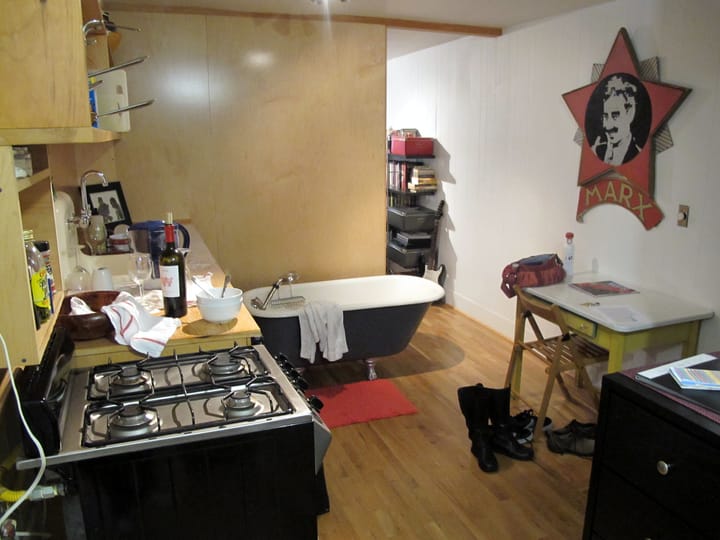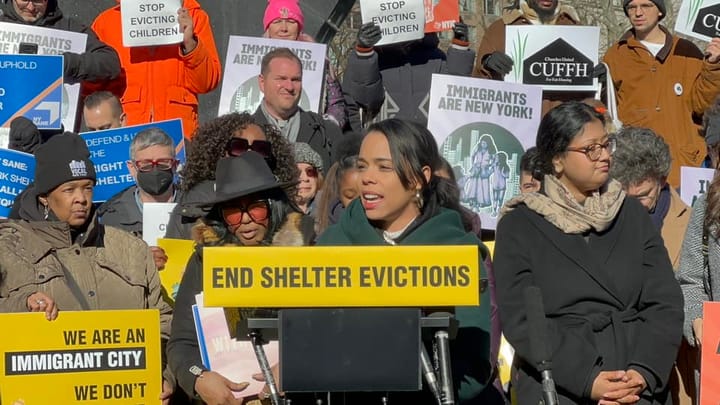Ask The Groove: How quickly can my landlord kick me out if I don’t have a lease?
You'll probably have to leave eventually, but you can buy yourself a lot of time before you do.

Q: I’ve been in my apartment for seven years, and my landlord never sent a new lease after the first year. If he decides to kick me out or sells the building, what are my rights?
A: On paper, landlord-tenant relations should be straightforward — you have a lease, it renews or it doesn’t, everyone abides by the terms of the lease and of housing laws in general, etc. But not every landlord bothers to do the paperwork, and as a tenant, it can feel safer to stay in a tenuous month-to-month situation than risk a new lease conversation that can lead to a rent increase, or worse, an eviction.
As far as your specific rights as a month-to-month tenant? “Every case is unique, it depends,” said Steven Ben Gordon, a Queens-based tenant defense attorney.
In determining your rights in this scenario, the first thing to establish is whether or not your apartment is rent-stabilized. If it is, it falls under the city’s rent stabilization laws, and you’re subject to a whole host of protections not available to market-rate renters.
“If you’re in a building with more than six units and you’re ostensibly a non-regulated tenant, I always tell people you might as well investigate to see if you might have an argument that you should be stabilized,” said tenant rights attorney Sam Himmelstein. You can do that by requesting your rent history via the Division of Housing and Community Renewal. (The City has a full guide on getting your rent history and figuring out your rent stabilization status here.)
If your apartment turns out to be stabilized, your landlord legally has to offer you the opportunity to renew your lease, and was supposed to make sure you had a lease in the first place, a representative from the Housing Court Answers helpline told The Groove. (Big thing to note here: the city has a major hub of legal resources for tenants here, including the option for a free consultation with an attorney for tenants facing eviction cases.)
If you are indeed in a non-regulated market rate apartment, however, you’ve got more options than you used to, thanks to the landmark Housing Stability and Tenant Protection Act of 2019.
Previously, if you were a month-to-month tenant, no matter how long you’d been in the building, you could be evicted after a landlord served you with a 30-day termination notice.
“With the new laws, if you’ve been in possession less than a year you’re entitled to a 30-day notice,” Himmelstein said. “If it’s been more than one year and less than two, it’s a 60-day notice, and if you’ve been in possession for more than two years, you’re entitled to a 90-day notice before they can take you to court.”

Once that notice expires, said Gordon, the landlord has to serve you with a Notice of Petition and Petition to bring you to court for a holdover proceeding, a process that can theoretically buy you more months in your apartment before you even wind up in legal proceedings. (“When in housing court on the first court date, most tenants show up without counsel and are told they should apply for right to counsel,” Gordon noted. “Usually when you apply for counsel, the court will give you an adjournment.”)
The long and short of all this, however, is that a landlord in this situation is likely within their legal rights to evict you eventually.
“Really, the main defense is to ask for time,” Himmelstein said.
This is another area where the 2019 tenant laws come through in the clutch. Prior to the new legislation, courts were allowed to give tenants up to six months to find a new apartment in cases like these, “and now, the court can give you up to a year to move, it’s up to their discretion,” Himmelstein said.
So you can’t force the landlord to give you a proper lease and keep you on as a tenant, but they also can’t force you to rush out of your apartment in 30 days, lease or no.
“Once a landlord is in court, they’ve made the decision to spend the money to get rid of the tenant,” Gordon said. “For them, the question is ‘how much is this going to cost me and how long will it take?’”





Comments ()